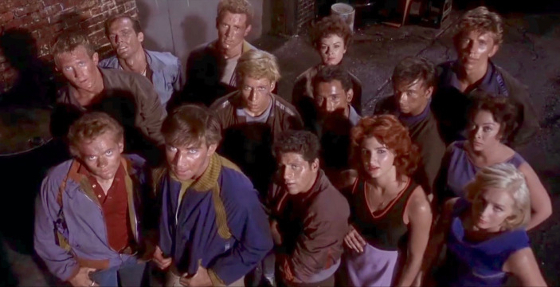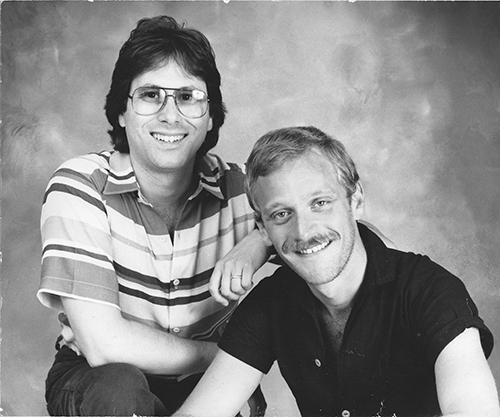Oct 17, 2023
Play It Cool
Can Musical Theatre Be Anything But Square?

I'm often embarrassed to tell others that I write musical theatre. I understand its perception. Syrupy. Commercial. Structurally conservative. There is something about musical theatre that is inherently corny. And, to be quite frank, many of its acolytes are doing their darndest to keep it that way. So you can understand my hesitation in coming out as a musical theatre creator, especially to other theatre makers. There's a feeling that it's "less than" in some way. That straight plays can enter an artistic space beyond what the American musical can access.
And perhaps to some extent, I agree. I often feel that musicals are overly burdened by expectations. Strict rules are required for entry: "I Want" songs, perfect rhymes, traditional architecture, etc. Violate any of the written commandments, and you're going to be stuck in submission hell for all eternity. The play, however, is given much more freedom to breathe. Structure can be discovered freely or outright avoided, dialog can become verse can become nonsense can become allegory, characters can come and go as they please or not show up at all. There's a literary playfulness within plays that is often shunned or criticized in the musical.
And often, that comes down to pure capital. Musicals simply cost more money to produce. It's more rehearsal time. More personnel to pay. Music directors. Musicians. They carry a lot more financial risk which inherently leads to less opportunities for workshops and readings. It's harder for backers to justify spending big on a wild swing, and harder for independent artists to create something on any competitive scale to Broadway mega-musicals.
Sondheim dictated to the creators that Content Dictates Form. But the financiers have the last word, so cuts were made.
 The hippest 30 year olds to ever attend Rydell High.
The hippest 30 year olds to ever attend Rydell High.
The rigid and culturally stagnant character of the musical could be written off as an economic issue. But barring these financial constraints, the question remains: can musical theatre be cool? Or is there something deep down in its DNA that has forever doomed it to the annals of cornball-dom?
First off, we need to properly define coolness, which is in itself an uncool thing to do. The NBA is cool, the NFL is not. Montreal is cool, Manhattan is not. Old Style is cool, PBR is not. I could go on. There's an endless list of things that are decidedly cool, but even the act of identifying them makes them uncool. It's observable, but undefinable. Like porn, we know it when we see it, and also like porn, it's best not to analyze it too much. Is it an ironic detachment from the mainstream? A nonchalant adoption of the norm? It can be hip, it can be square. But one thing is certain: coolness cannot be manufactured.
And that's where so many go wrong. Coolness is not trendiness. You cannot cultivate coolness, you just simply are. There's a carelessness to it – a desire to do one's thing so earnestly that no critique could alter it. Of course, this is a myth. Nothing is so wholly cool that it is beyond influence. But it certainly is not attempting to be cool. It doesn't want to be cool.
Now before we go deeper, I will be the first to admit that my own work isn't cool. I haven't deluded myself into thinking that my shit don't stink, I've merely deluded myself into thinking that I can write musical theatre. If there is a cool note to be sung, I haven't written it. But I do find that I have an aversion to trendiness. My ethos is simple. Ask WWALWD (figure it out) then do the opposite. Write the stuff that I want to write, and not what I think others want to pay for. Clearly, this isn't working out for me. Not only am I not cool, I'm also not getting anything produced. A real damned-if-you-do situation, but at least I've been inoculated from a lethal case of Try Hardism.
So let's examine some of those fruitless attempts at coolness within our musical theatre landscape. Has there ever been a truly cool musical? At one point, there was RENT – the undisputed king of the MTV generation and the edgy savior of 90s Broadway. But now look at it. It's got all the bite of a Very Special Episode of Friends. And frankly, those kids need a little bit of a beat down. One well-placed wedgie would have saved us from decades of hearing attempts at "Over the Moon." One knuckle sandwich could have spared us from the inflated egos of actors who once played Roger in high school.
 Mark and his friends force their performance art onto the patrons of TGI Fridays mere moments after inciting a riot.
Mark and his friends force their performance art onto the patrons of TGI Fridays mere moments after inciting a riot.
I am being hyperbolic, of course, but I do think Larson made a critical mistake in tying the show so tightly to the Gen X aesthetic. It's a show that screamed Not Your Parents' Musical at a time when musicals really needed a shake-up. But the problem with being the hip young persons' show is that young people have an annoying tendency to age. RENT is now firmly solidified as Your Parents' Musical. As uncool as skinny jeans, side parts, and knowing how to write in cursive.
But let's go back further. Is Chicago cool? It's almost trying too hard to be. West Side Story feels close to cool, but the song about being cool is very uncool. Threepenny Opera could be cool, I suppose, but then we're getting into a semantic argument over what is and isn't a musical. I don't even want to touch the current Broadway scene, which I find is very much addicted to making another RENT. I also don't want to touch it because those creators are very much alive and very able to read this. I'm also hoping that I could be selected to write the musical adaptation of What Women Want in the future and I don't want my own words to be used against me.
Now, there are shows that I personally think are cool. Assassins. Little Shop of Horrors. Cabaret. But I don't think they would fit the average person's definition of "cool." What these shows do offer is something new and unorthodox – perhaps even dangerous – without chasing trends. They believe so ardently in their subject matter that they become elevated from the pack, even morphing into trendsetters themselves. They're somehow both of their times and timeless. And most importantly, they could not have been created by anyone else. Any attempt to replicate their qualities becomes bland in comparison. Toothless.
 Slow down: you might just miss the coolest photograph ever captured on film.
Slow down: you might just miss the coolest photograph ever captured on film.
But these are all things that make these shows great, not necessarily cool. There's something about coolness that simply doesn't care. It's effortless. It shirks attention to detail and laughs in the face of craft. And one quality that these shows all share is that they care deeply about musical theatre as an art. About what it can do and what it can say. About how the form can be altered into something new, not for the sake of newness, but for the sake of the story.
My honest opinion is that musical theatre simply cannot be cool. It's an impossible goal for such a rigid medium. So what are we to do? Resign ourselves to a lifetime of making more corny work to reflect our equally corny times? Give in to the relentless waves of ennui with each new IP-tinged Broadway announcement? Of course not.
But maybe all this is happening because of our society's obsession with coolness. That our constant chase of rabid teenage fanbases and surface-level cultural relevancy is hindering our ability to think long term. To build something with a longer shelf life. To carefully consider something beyond our current moment.
So let's buck some trends. Let's shake things up. Let's stop describing every new show as "a life-affirming work." For every perfectly comprehensible blockbuster, let there be an equally baffling clunker. Quiet failures that haunt my mind for years. Foul balls that still fly over the grandstands. Let's stop singing "Over the Moon" and start milking that damn cow ourselves.
It might not make us cool, but it could make us great.
